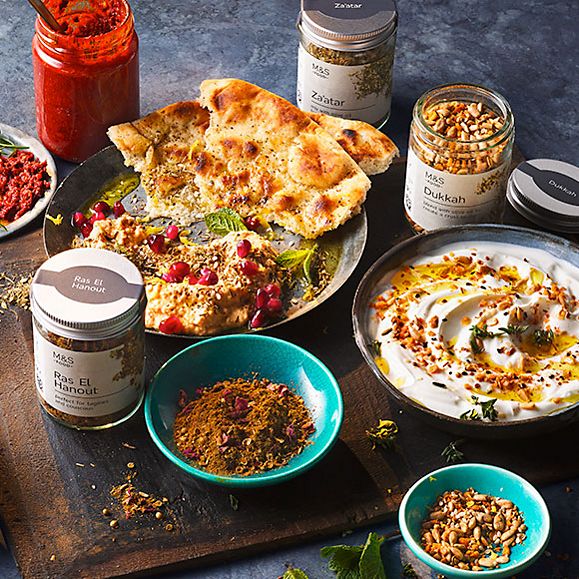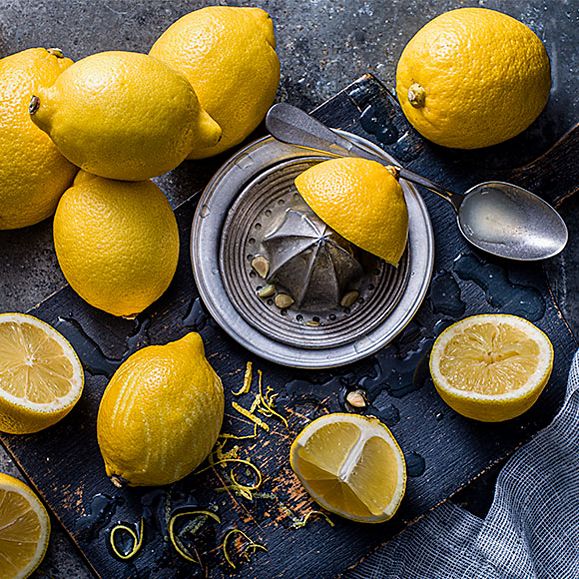These are not just ingredients...
...These are M&S ingredients. Our in-house nutrition experts explain all you need to know about the ingredients we use at M&S.

Creating the magic
At M&S, we aim to inspire our customers with fresh, convenient and delicious food, making it easy for everyone to make healthy choices. When it comes to developing new products, we always think carefully about what ingredients we use and what processes we follow, keeping them as close to a normal home kitchen as possible. We don’t include anything we don’t need to, always ensure our food is safe and continue to make amazing, high quality products our customers know and love. We’re constantly reviewing our processes and have certain ingredients we never use or allow in M&S foods.
You’ll never find these ingredients in our food
No MSG: In 2003, M&S removed monosodium glutamate from all food. MSG is a flavour enhancing ingredient, but we focus on delivering the best quality and flavour naturally.
No hydrogenated fats: In 2006, M&S became the first major retailer to remove hydrogenated fats from all food. Hydrogenated fats (also known as trans fats) are a type of saturated fat that can have an adverse effect on heart health.
No aspartame: In 2007, M&S prohibited the use of aspartame from all own label products, minimising the use of unnecessary additives and encouraging more natural ingredients.
No artificial colours or flavours: In 2008, M&S removed all artificial colours and flavourings. Everything is derived from natural ingredients and there are no unnecessary additives, including the Southampton Six artificial colours which have an adverse effect on activity and attention in children. In our Tastebuds range for those aged 4-10 years, we don’t use artificial colours, flavours, sweeteners or salt substitutes.
No titanium dioxide: In 2021, we committed to the removal of titanium dioxide, due to the additive being the subject of health investigations.
No gene-edited foods: We don’t sell any gene-edited food.
No genetically modified ingredients: M&S is committed to providing foods which do not contain genetically modified (GM) ingredients or derivatives.


Getting to know our ingredients and understanding additives
At M&S, we aim to use natural ingredients first and have an industry-leading approach to additive use. Additives are used for a variety of functions, including maintaining product quality and keeping food safe.
Here are some examples:
Calcium carbonate: The Bread and Flour Regulations 1998 specified all wheat flour (except wholemeal) must be fortified with iron, calcium, thiamin and niacin. This was put in place to help reduce the risk of deficiencies in the general population. Calcium carbonate is a dietary supplement added to flour to increase calcium intake. That’s why on any products containing wheat flour such as bakery items or sauces, calcium carbonate will be included.
Sodium bicarbonate: Also known as baking powder – which you'll likely find in your kitchen at home – this is a commonly used raising agent in cakes and breads.
Ascorbic acid and citric acid: Ascorbic acid (more commonly known as vitamin C) and citric acid are both antioxidants which help to stop food discolouring or drying out. Lemon juice contains citric acid, ascorbic acid and water, in a less concentrated form.
Nitrates and nitrites: These are commonly found in sliced and cooked meats, which are foods that should be consumed in moderation as part of a healthy, balanced diet. Nitrates act as a preservative in cooked meats, to maintain safety and product quality over time. At M&S we sell Made Without Nitrate bacon to offer customers the choice.
Emulsifiers: These are a type of food additive used to help mix two substances that typically separate when they are combined. Natural emulsifiers include egg, soy and pectin derived from fruit.
What’s the recipe for a healthy balanced diet?
With so much information available, simple food choices can feel quite tricky to navigate.
When making healthy choices, it’s important to consider nutrient content, and limit the consumption of foods high in fat, salt or sugar.
At M&S, we’ve developed our Eat Well seal of approval, which can be found on all products developed in line with government healthy eating guidelines. It gives customers an easy short cut: just follow the flower to make healthier choices. There are around 1,800 Eat Well products in the Foodhall, on everything from curries to sarnies. Plus, they all meet evidence-based nutrition criteria and have been developed in consultation with the British Nutrition Foundation.
The main principles are:
- Include a range of fruit and vegetables – at least five-a-day.
- Include plenty of fibre-rich foods, especially wholegrains.
- Include a range of protein-sources, especially beans, peas and lentils.
- Include some dairy foods or fortified alternatives.
- Choose mainly unsaturated fats and oils.
At M&S, we believe food is to be enjoyed and want to help our customers make healthy choices – with room for some treats too.

